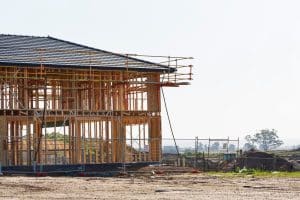Home Energy Audits: What to Expect
If you’re a homeowner looking to make your home more energy efficient, you may have heard about home energy audits. But what exactly are they? Home energy audits are thorough evaluations of a home’s energy usage, efficiency, and potential areas of improvement. The findings from an audit can help homeowners save money on energy bills, increase comfort levels, and reduce their carbon footprint. In this article, we’ll take a closer look at what to expect during a home energy audit and how it can benefit you and your home.
What is a Home Energy Audit?
A home energy audit is like a check-up for your home’s energy usage. During an audit, a professional energy auditor will assess all areas of your home, from the insulation and windows to the appliances and HVAC system. The auditor will look for inefficiencies and areas where energy is being wasted, and then provide recommendations for improvements.
The process typically starts with a visual inspection of your home’s exterior and interior. The auditor will then use advanced tools and equipment to test for air leaks and measure insulation levels. They may also conduct a blower door test, which involves fitting a large fan into an exterior door and measuring how much air is escaping from the house.
The Benefits of a Home Energy Audit
Now that you know what a home energy audit is, let’s take a look at why it’s beneficial for homeowners. One of the most significant benefits of an energy audit is that it can help you save money on your utility bills. By identifying areas where your home may be losing energy, the auditor can provide recommendations for making improvements, such as sealing air leaks or upgrading to energy-efficient appliances. These upgrades can significantly reduce your energy consumption and save you money in the long run.
Another benefit of a home energy audit is that it can increase the comfort of your home. During an audit, the energy auditor will likely check for drafts and assess the insulation levels in your home. By addressing air leaks and properly insulating your home, you can reduce drafts and improve overall comfort levels.
Additionally, a home energy audit can help reduce your home’s carbon footprint and make it more environmentally friendly. By using less energy, your home will have a smaller impact on the environment. Plus, many energy-efficient upgrades, such as switching to LED light bulbs or upgrading to Energy Star appliances, can also help reduce your home’s carbon footprint.
What to Expect During a Home Energy Audit
So, what exactly happens during a home energy audit? Let’s take a closer look at what to expect during this process:
1. Visual Inspection
The first step of a home energy audit is a visual inspection. The energy auditor will walk through your home, both inside and out, to gather information about its construction, age, and condition. They will also look for potential areas of energy inefficiency, such as drafty windows or poorly insulated walls.
2. Blower Door Test
As mentioned earlier, the blower door test is a common part of a home energy audit. This test measures the airtightness of your home using a special fan and pressure gauges. By identifying areas where air is escaping, the energy auditor can make recommendations for sealing these leaks to improve your home’s energy efficiency.
3. Insulation Check
The energy auditor will also check the insulation levels in your home during the audit. They may use tools, such as a thermal camera, to determine if your home has enough insulation and if it is evenly distributed. If needed, they will recommend adding more insulation to improve your home’s energy efficiency.
4. HVAC System Assessment
Your home’s heating and cooling system play a significant role in its energy usage. During a home energy audit, the auditor will assess your HVAC system to ensure it is operating efficiently. They may also make recommendations for upgrading to a more energy-efficient system or performing regular maintenance to improve its performance.
Conclusion
A home energy audit is a valuable tool for homeowners looking to improve their home’s energy efficiency, reduce utility bills, and increase comfort levels. By identifying areas of energy inefficiency and providing recommendations for improvements, energy auditors can help homeowners make significant changes that benefit both their wallets and the environment. If you’re considering a home energy audit, be sure to work with a professional who is certified and has a good reputation in your area. With their expertise, you can expect to see significant improvements in your home’s energy usage and comfort levels.










